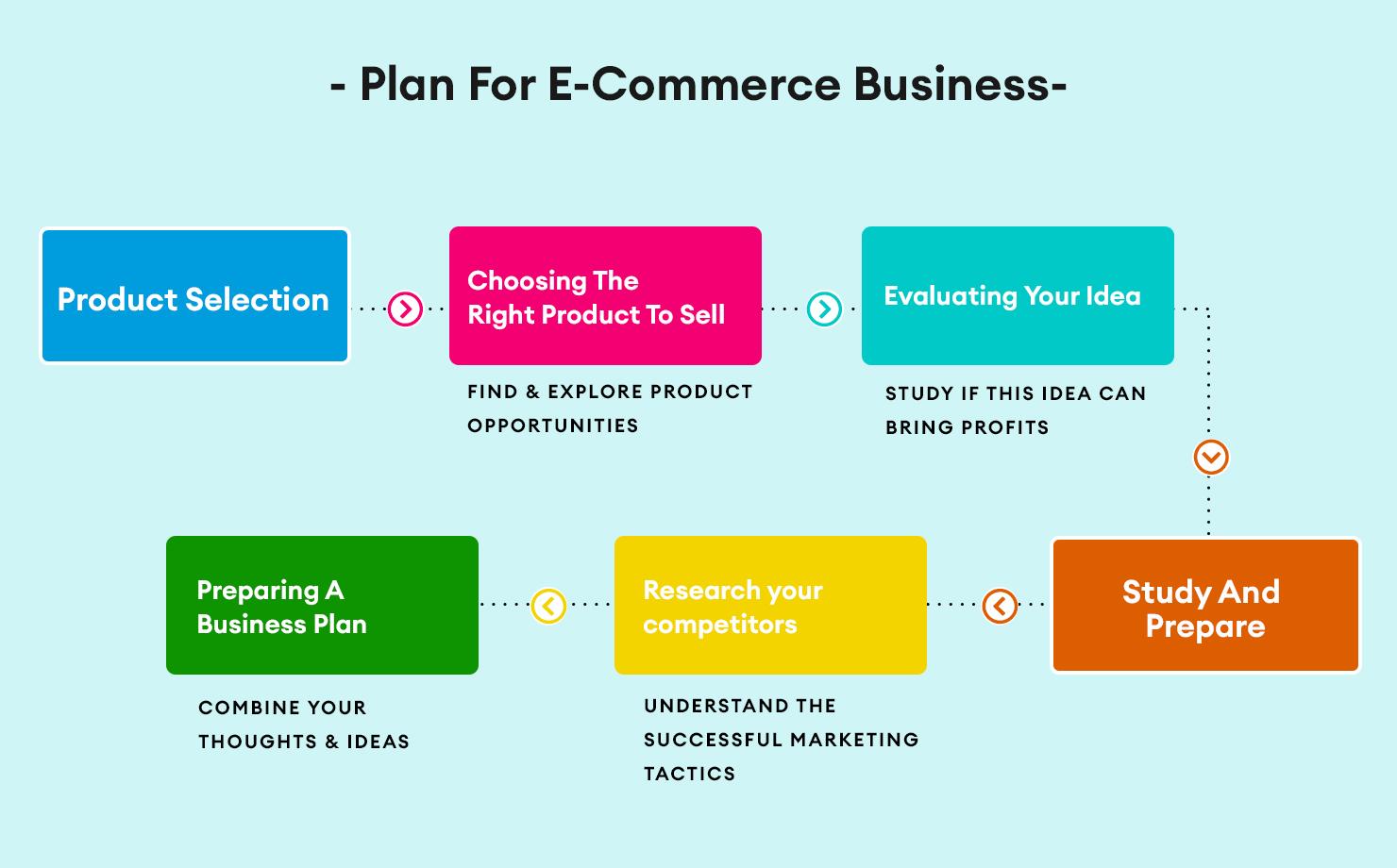In today’s fast-paced digital world, where convenience is king, the importance of efficient delivery management in eCommerce cannot be overstated. Customers expect their purchases to arrive at their doorsteps in record time, and any hiccup in the delivery process can lead to frustration and lost sales. That’s where eCommerce delivery management platforms come into play. These innovative tools streamline the logistics of getting products from point A to point B, ensuring a smoother experience for both businesses and customers. So, if you’re eager to enhance your delivery game and keep your customers coming back for more, you’ve landed in the right place! In this article, we’ll explore 11 standout examples of eCommerce delivery management platforms that can elevate your business operations, boost customer satisfaction, and ultimately drive sales. Let’s dive in and discover how these platforms can transform the way you handle delivery!
Understanding Ecommerce Delivery Management Platforms
In today’s fast-paced digital landscape, managing delivery effectively is a game-changer for ecommerce businesses. With the rise of online shopping, customers expect seamless, timely deliveries, making it essential for merchants to adopt sophisticated delivery management platforms. These platforms not only streamline logistics but also enhance customer satisfaction and loyalty.
What to Look for in a Delivery Management Platform:
- Real-Time Tracking: Customers love knowing where their packages are. A good platform provides real-time tracking updates, giving both merchants and customers peace of mind.
- Automated Routing: Efficient route planning reduces delivery times and costs. Look for platforms that use advanced algorithms to optimize delivery routes automatically.
- Integration Capabilities: Seamless integration with existing ecommerce systems and third-party logistics providers is crucial for smooth operations.
- Data Analytics: Insights into delivery performance help businesses make informed decisions, from inventory management to customer service strategies.
Many ecommerce delivery management platforms also offer features like automated notifications, allowing customers to receive updates via their preferred communication channels. This not only enhances the customer experience but also reduces the volume of inquiries related to order statuses. Additionally, platforms may provide customizable delivery options, such as same-day delivery or pickup points, catering to diverse customer needs.
Here’s a quick comparison of some popular ecommerce delivery management platforms:
| Platform | Key Features | Best For |
|---|---|---|
| ShipBob | Real-time tracking, inventory management | Small to medium-sized businesses |
| Easyship | Global shipping, automated customs | International ecommerce |
| LogiNext | Route optimization, analytics | Large enterprises |
| Onfleet | Driver management, customer notifications | Local deliveries |
Incorporating a delivery management platform into your ecommerce strategy can elevate your business by enhancing operational efficiency and improving customer experiences. By leveraging these tools, you can not only meet but exceed customer expectations, fostering loyalty and driving repeat business.
Key Features to Look for in Delivery Management Solutions
When selecting a delivery management solution, it’s essential to consider features that not only enhance your operational efficiency but also improve customer satisfaction. Firstly, real-time tracking capabilities are a must. Customers appreciate knowing where their packages are at all times, and providing them with accurate updates can significantly reduce inquiries and enhance their overall experience.
Another crucial feature is route optimization. Efficient routing can minimize delivery times and costs, allowing your business to operate more smoothly. With sophisticated algorithms, these solutions can analyze various factors such as traffic patterns and weather conditions to suggest the fastest routes for your delivery personnel. This not only saves time but also reduces fuel expenses, contributing to a greener approach.
Additionally, look for platforms that offer robust reporting and analytics tools. These features provide invaluable insights into your delivery operations by highlighting key performance indicators and trends. You can track metrics such as delivery times, customer satisfaction scores, and operational costs, empowering you to make data-driven decisions for continuous improvement.
Another handy feature is integration capabilities. The best delivery management solutions can seamlessly integrate with your existing eCommerce platforms, CRM systems, and other software. This ensures that data flows smoothly across your business ecosystem, allowing for better inventory management and a more cohesive operation. Having everything in one place reduces manual errors and enhances efficiency.
Lastly, consider the customer communication tools that the solution offers. Automated notifications through SMS or email regarding order status updates can enhance customer engagement. The ability to provide customers with a delivery window or the option to reschedule can significantly improve their experience and build loyalty for your brand.
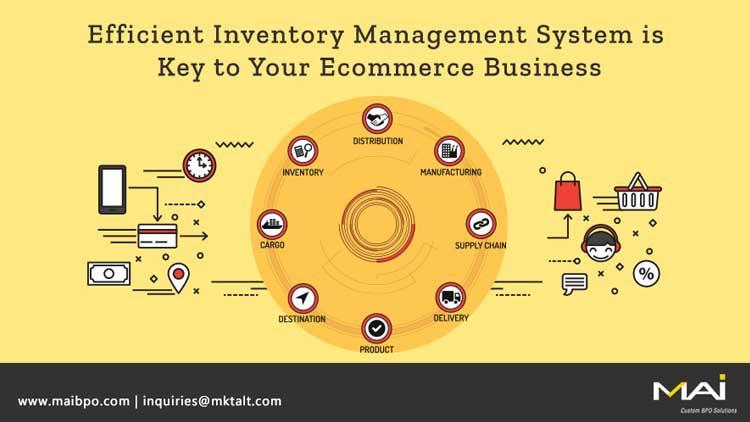
Comparing Top Ecommerce Delivery Management Platforms
When it comes to choosing the right delivery management platform for your ecommerce business, the options can be overwhelming. Each platform offers a unique set of features tailored to different types of businesses, making it essential to understand how they stack up against each other.
One of the key factors to consider is ease of integration. Platforms like ShipStation and Easyship excel in providing seamless integration with various ecommerce sites, allowing businesses to manage orders and shipping from a single dashboard. This is particularly beneficial for small to medium-sized businesses looking to streamline their operations without the need for extensive technical knowledge.
Another important aspect is delivery tracking features. Some platforms, such as Aftership, specialize in advanced tracking capabilities, enabling you and your customers to track shipments in real-time. This feature not only boosts customer satisfaction but also helps reduce customer service inquiries related to shipping status. On the other hand, platforms like Parcelhub focus on enhancing the user experience with branded tracking pages, ensuring that customers feel connected to your brand throughout the delivery process.
Cost-effectiveness is a major consideration as well. Platforms like Shippo offer competitive pricing structures that can save businesses money on shipping costs while providing robust features. The flexibility to choose pricing plans based on order volume can be a game-changer for startups and growing enterprises trying to manage budgets effectively.
Lastly, customer support and user experience cannot be overlooked. Platforms like Logiwa provide exceptional customer support, ensuring that businesses can quickly resolve issues as they arise. User-friendly interfaces, combined with comprehensive resources like tutorials and FAQs, also play a crucial role in how well a platform suits your business needs. Assessing these factors can guide you toward the right choice for your unique ecommerce requirements.
Boosting Customer Satisfaction with Efficient Delivery Management
In the fast-paced world of eCommerce, timely and effective delivery management is crucial for enhancing customer satisfaction. Customers today expect not only quality products but also swift and reliable delivery services. By leveraging cutting-edge delivery management platforms, businesses can streamline their shipping processes, leading to improved customer experiences.
Key benefits of efficient delivery management include:
- Real-time tracking: Customers appreciate knowing where their orders are at any given moment. Offering real-time tracking can significantly reduce anxiety and improve satisfaction.
- Faster shipping options: Integrating multiple carriers allows businesses to provide customers with a variety of delivery speeds, catering to those who need their items urgently.
- Seamless communication: Automated notifications regarding order status, shipping updates, or delays keep customers in the loop and foster trust.
Moreover, an efficient delivery management system can also enhance operational efficiency on the backend. With advanced tools, businesses can:
- Optimize delivery routes: By utilizing algorithms to determine the best routes, companies can reduce shipping times and costs, ultimately passing the benefits on to customers.
- Manage inventory better: A cohesive system allows for improved inventory tracking, ensuring that popular items are always in stock and ready to ship.
- Collect valuable data: Insights from delivery data can help businesses refine their strategies, understand customer preferences, and ultimately improve service.
Let’s take a look at some of the top eCommerce delivery management platforms that can transform your shipping processes:
| Platform Name | Key Features |
|---|---|
| ShipStation | Multi-carrier support, branded tracking pages |
| EasyShip | Global shipping solutions, automatic duty and tax calculation |
| AfterShip | Order tracking, customer notifications |
| ShipBob | Fulfillment services, inventory management |
| Logiwa | Warehouse management, real-time insights |
By adopting these platforms, companies can not only enhance their delivery efficiency but also significantly boost customer satisfaction. With the right tools in place, businesses can create a seamless shopping experience that keeps customers coming back for more.

Cost-Effective Delivery Solutions for Small Businesses
For small businesses venturing into the world of eCommerce, finding cost-effective delivery solutions is essential to ensure customer satisfaction while keeping expenses manageable. With the right delivery management platforms, businesses can streamline their logistics, reduce shipping costs, and improve overall efficiency.
Here are some vital features that make these platforms indispensable:
- Real-Time Tracking: Keep customers informed about their orders with real-time tracking capabilities, enhancing transparency and trust.
- Multi-Carrier Support: Choose from a variety of shipping carriers to find the best rates and delivery times, allowing you to adapt to changing market conditions.
- Automated Label Generation: Save time and reduce errors with automated label printing, allowing for a seamless shipping process.
- Inventory Management: Maintain control over stock levels and streamline order fulfillment by integrating inventory management with your delivery solutions.
The cost of shipping can be a significant burden for small businesses. By utilizing platforms that offer discounted shipping rates, companies can pass these savings onto their customers and remain competitive in the ever-evolving eCommerce landscape. Many of these platforms negotiate bulk rates with carriers, providing small businesses with access to prices typically reserved for larger companies.
As an example, consider the following comparison of some popular delivery management platforms:
| Platform | Starting Price | Key Features |
|---|---|---|
| ShipStation | $9/month | Multi-carrier support, automation tools |
| Easyship | Free | International shipping, tax & duty calculation |
| ShipBob | Varies | Fulfillment center network, real-time inventory |
| Stamps.com | $17.99/month | Discounted USPS rates, batch shipping |
Leveraging these cost-effective delivery solutions not only helps in cutting down expenses but also significantly enhances the customer experience. Happy customers are more likely to become repeat buyers, which is vital for the growth of any small business. By investing in the right ecommerce delivery management platform, small businesses can focus on what they do best—providing exceptional products and services—while leaving the logistics to the experts.
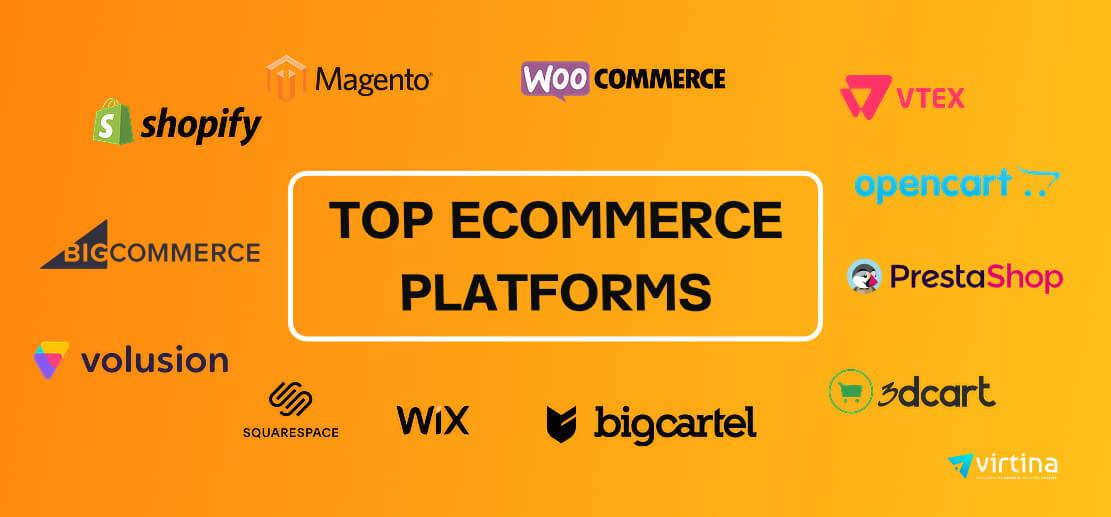
How to Choose the Right Platform for Your Ecommerce Needs
When selecting an ecommerce delivery management platform, it’s crucial to align its features and capabilities with your business objectives. Start by identifying what you prioritize the most—whether it’s speed, cost-effectiveness, or customer experience. Each platform offers unique attributes, and recognizing your specific requirements will help you narrow down your options effectively.
Consider the following key factors:
- Integration: Choose a platform that seamlessly integrates with your existing ecommerce systems and marketplaces. This will streamline your operations and reduce the likelihood of errors.
- Scalability: As your business grows, so will your delivery needs. Opt for a platform that can scale with your business, accommodating increasing order volumes and additional services.
- User Experience: A user-friendly interface can significantly affect efficiency. Ensure that both your team and customers find the platform easy to navigate.
Cost is always a significant consideration. Look for transparency in pricing models. Some platforms charge per shipment, while others have a flat monthly fee. Make sure to evaluate potential hidden costs, such as transaction fees or charges for add-on features. This will give you a clearer picture of the overall investment required.
Moreover, consider the level of customer support offered by the platform. Reliable support can be invaluable, especially during peak seasons when delivery logistics can get tricky. Check if they provide 24/7 support, training resources, or dedicated account managers to assist you as needed.
it’s wise to explore user reviews and case studies. Real-world experiences can provide insights into how well a platform performs in practice. Look for platforms that have successfully helped businesses similar to yours streamline their logistics and improve their delivery times.
As you evaluate your options, compiling a comparison table can be helpful. Here’s a simple example:
| Platform | Integration | Scalability | Cost | Support |
|---|---|---|---|---|
| Platform A | Excellent | High | $$ | 24/7 |
| Platform B | Good | Medium | $$$ | Business Hours |
| Platform C | Fair | High | $ | Limited |
By taking the time to evaluate these aspects, you can confidently choose a delivery management platform that will not only meet your current needs but also grow with your business, enhancing your overall ecommerce strategy.
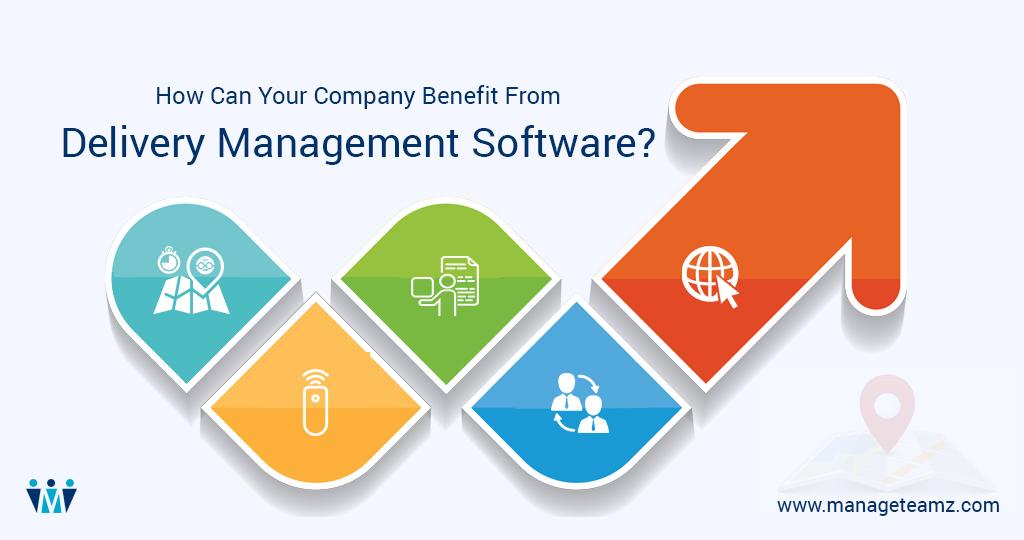
Integrating Delivery Management with Your Existing Systems
is a game-changer for ecommerce businesses. It streamlines operations, reduces errors, and improves customer satisfaction. When you can seamlessly connect your platforms, every order becomes a well-oiled machine, and you can focus more on growth and less on logistics.
Here are some key benefits of integrating your delivery management system:
- Real-Time Tracking: Customers can see where their orders are at any time, reducing anxiety and enhancing trust.
- Automated Updates: Save time and effort by automating notifications for both customers and staff, ensuring everyone is in the loop.
- Centralized Data Management: All relevant data is housed in one system, making it easier to analyze performance and optimize operations.
- Cost Efficiency: Reduce operational costs through streamlined processes, enabling better resource allocation.
To achieve a successful integration, consider the following strategies:
- APIs: Use Application Programming Interfaces to enable different systems to communicate effortlessly, allowing for efficient data exchange.
- Webhook Notifications: Set up webhook notifications to trigger actions in real-time, keeping your team agile and responsive to changes.
- Custom Dashboards: Create dashboards that reflect combined data from your ecommerce and delivery management systems, making it easy to track KPIs at a glance.
Additionally, evaluate your existing systems and identify the areas that would benefit most from integration. For instance, if your ecommerce platform has a rich array of customer data, linking it with your delivery management software can help create personalized delivery experiences, nurturing customer loyalty. Below is a simple comparison table of popular delivery management platforms and their integration capabilities:
| Platform | Integration Options | Notable Features |
|---|---|---|
| ShipStation | API, Plugins | Multi-carrier support, Automated workflows |
| Easyship | API, Various ecommerce platforms | Global shipping solutions, Cost calculator |
| AfterShip | API, Shopify, WooCommerce | Tracking API, Analytics dashboard |
Ultimately, by , you empower your ecommerce business to thrive in a competitive landscape. The flow of information becomes seamless, allowing you to deliver an exceptional customer experience while maximizing operational efficiency.

Real-Life Success Stories from Ecommerce Brands Using Delivery Platforms
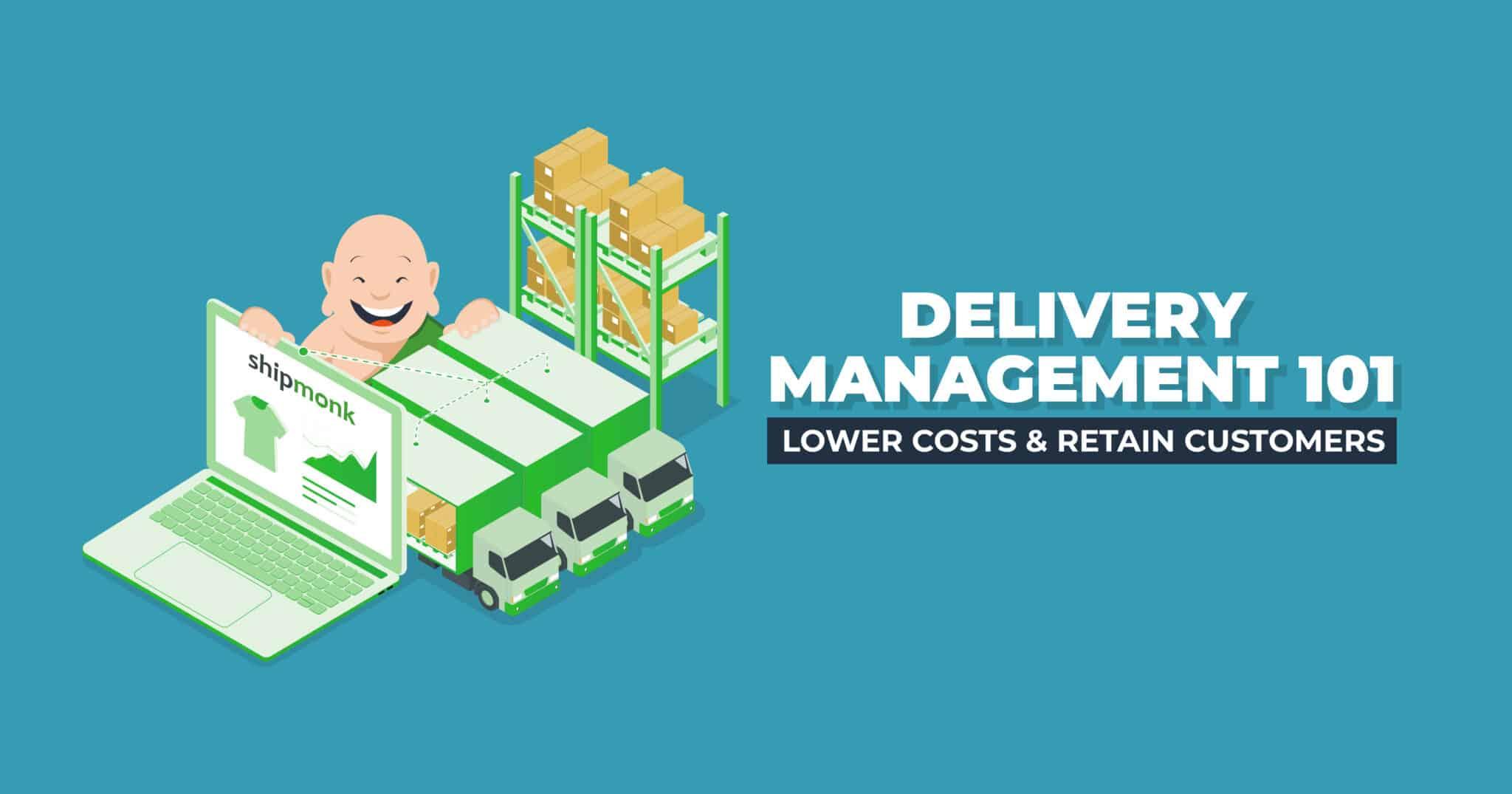
Future Trends in Ecommerce Delivery Management
The landscape of ecommerce delivery management is evolving rapidly, driven by technological advancements and changing consumer expectations. As we look ahead, several key trends are emerging that are set to transform how businesses handle their delivery processes.
Increased Automation is one of the primary trends reshaping delivery management. Companies are increasingly adopting automated systems to streamline operations. This includes everything from automated order processing to the use of drones and autonomous vehicles for last-mile delivery. With automation, businesses can reduce human error, enhance efficiency, and significantly cut down on delivery times.
Personalization is another trend that is gaining momentum. Consumers are now expecting tailored experiences, and this extends to delivery options as well. Ecommerce platforms are leveraging data analytics to understand customer preferences and behaviors. This allows them to offer customized delivery schedules or specific delivery windows that cater to individual needs. The goal here is to enhance customer satisfaction and loyalty.
Moreover, the rise of sustainable delivery solutions cannot be ignored. As environmental concerns continue to climb, ecommerce businesses are seeking eco-friendly delivery options. This includes electric delivery vehicles, bike couriers in urban areas, and the implementation of green packaging materials. Companies that embrace sustainability not only reduce their carbon footprint but also attract environmentally conscious consumers.
| Trend | Description |
|---|---|
| Increased Automation | Streamlining operations through technology to enhance efficiency |
| Personalization | Tailoring delivery options based on consumer data |
| Sustainable Solutions | Adopting eco-friendly delivery methods and packaging |
the integration of real-time tracking and transparency is becoming a standard expectation among consumers. With the rise of mobile technology, customers want to know exactly where their packages are at any given moment. Delivery management platforms are responding to this need by offering real-time tracking features that keep customers informed throughout the delivery process. This not only improves trust but also reduces anxiety and uncertainty surrounding online purchases.
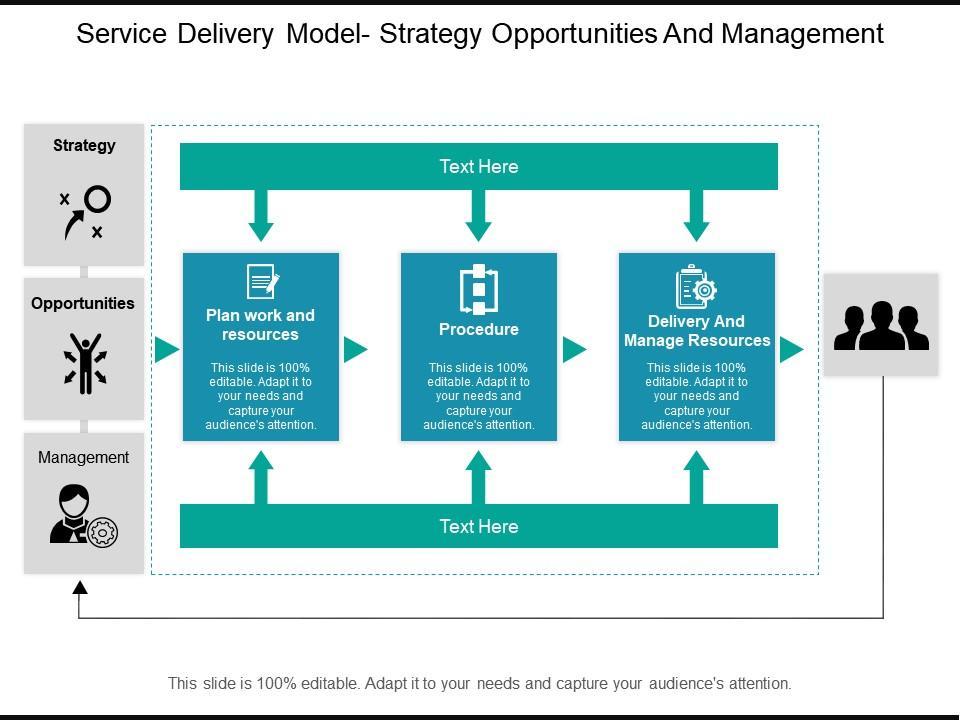
Maximizing Your ROI with the Right Delivery Management Strategy
In the fast-paced world of ecommerce, having a robust delivery management strategy can significantly enhance your return on investment (ROI). Choosing the right delivery management platform can streamline your operations, reduce costs, and improve customer satisfaction. Here are several key elements to consider when formulating your strategy:
- Automation of Processes: Many delivery management platforms offer automation tools that reduce manual intervention. Automating order processing, route planning, and tracking can lead to significant time savings and lower labor costs.
- Real-time Tracking: Providing real-time tracking updates enhances customer experience, making them feel more in control. Customers appreciate knowing exactly when their packages will arrive, which can lead to repeat business.
- Cost Efficiency: An effective delivery management strategy can help minimize shipping costs. By optimizing delivery routes and consolidating shipments, you can save money while still delivering products on time.
- Scalability: As your ecommerce business grows, so will your shipping needs. The right delivery platform should be scalable, adapting to increased order volumes without compromising service quality.
- Integration Capabilities: Ensure that your chosen platform integrates seamlessly with your existing ecommerce systems. This will streamline operations and provide a more cohesive experience for your customers.
Moreover, consider the data analytics features offered by these platforms. Being able to analyze shipping data can help you identify trends, optimize inventory levels, and make informed decisions about your logistics strategy. For instance, understanding peak shipping times can allow you to prepare in advance, ensuring you meet customer demands without incurring extra costs.
To illustrate the benefits of a solid delivery management strategy, here’s a simple comparison table highlighting some popular ecommerce delivery management platforms:
| Platform | Key Features | Pricing Model |
|---|---|---|
| ShipBob | Inventory Management, Real-time Tracking, Automation | Pay-per-order |
| Easyship | Global Shipping, Cost Calculator, Integrations | Subscription Plans |
| ShipStation | Multi-Channel Selling, Automation Rules, Reporting | Monthly Subscription |
| AfterShip | Tracking Automation, Customer Notifications, Analytics | Free with Limited Features |
a well-thought-out delivery management strategy does not just improve efficiency; it can also transform the overall customer experience, leading to increased loyalty and, ultimately, a higher ROI. By prioritizing the right tools and practices, you’ll be better positioned to meet the demands of your growing customer base while maximizing your profits.
Frequently Asked Questions (FAQ)
Q&A: Exploring Ecommerce Delivery Management Platforms
Q: What are ecommerce delivery management platforms, and why are they important?
A: Great question! Ecommerce delivery management platforms are software solutions that help online retailers manage and streamline their shipping and delivery processes. They’re essential because they improve the efficiency of order processing, enhance customer satisfaction, and ultimately boost sales. In today’s competitive landscape, a smooth delivery experience can be a game-changer for businesses looking to stand out.
Q: Can you give me an overview of some notable platforms?
A: Absolutely! Here are 11 standout ecommerce delivery management platforms that can help you take your shipping game to the next level:
- ShipBob: Ideal for small to mid-sized businesses, ShipBob offers fulfillment services and an easy-to-use dashboard to track orders.
- Easyship: Perfect for global shipping, Easyship provides transparent shipping costs and options for various carriers.
- ShipStation: A favorite among many retailers, ShipStation integrates with multiple ecommerce platforms and offers robust shipping automation features.
- AfterShip: Focused on delivery tracking, AfterShip helps retailers keep customers informed about their order status, which enhances transparency and trust.
- Logiwa: A cloud-based solution that caters to warehouses, Logiwa simplifies inventory and order management while optimizing fulfillment processes.
- Ordoro: This platform combines shipping with inventory management, allowing businesses to manage orders from multiple channels in one place.
- ShipHero: With its easy-to-navigate interface, ShipHero is designed for ecommerce brands looking to scale their shipping operations efficiently.
- WMS: Warehouse Management Systems like Fishbowl can enhance inventory accuracy and improve fulfillment speed.
- Route: This platform focuses on providing a seamless post-purchase experience, offering package tracking and insurance options to customers.
- Stamps.com: Known for its USPS shipping solutions, Stamps.com is a great choice for businesses looking for cost-effective shipping options.
- Deliverr: This platform specializes in fast fulfillment, making it easier for ecommerce businesses to offer two-day shipping.
Q: How do I choose the right platform for my business?
A: Choosing the right ecommerce delivery management platform depends on several factors, including your business size, shipping volume, and specific needs. Start by evaluating what features are most important to you—like integration capabilities, user-friendliness, or customer support. It’s also wise to look for a platform that scales with your business as it grows. Don’t hesitate to take advantage of free trials or demos to see which fits your workflow best!
Q: What benefits can I expect from using these platforms?
A: The benefits are numerous! You can expect enhanced shipping speed, reduced operational costs, improved inventory management, and a better customer experience overall. Customers love to receive their orders on time, and using a reliable delivery management platform helps ensure their satisfaction. Plus, many of these platforms offer analytics and reporting features, enabling you to continually optimize your shipping strategy.
Q: Are there any common pitfalls to watch out for?
A: Definitely! One common mistake is not taking the time to integrate the platform with your existing systems properly. Poor integration can lead to inventory inaccuracies and shipping errors. Additionally, be cautious about hidden fees that may arise as your shipping volume increases. Always read the fine print and ensure that the platform you choose aligns with your growing business needs.
Q: What’s the bottom line? Why should I invest in a delivery management platform?
A: Investing in a delivery management platform is investing in your business’s future. In the world of ecommerce, where customer expectations are soaring, having a reliable way to manage deliveries is critical. Not only does it save you time and money, but it also helps build a loyal customer base who appreciates a seamless shopping experience. So, if you haven’t yet explored these platforms, now’s the time to dive in! You won’t regret it.
Key Takeaways
As we wrap up our exploration of ecommerce delivery management platforms, it’s clear that the right tools can transform your shipping experience from a logistical headache into a streamlined, efficient operation. Whether you’re a small business just starting out or a seasoned retailer looking to enhance your delivery strategy, the examples we’ve discussed offer a variety of features and benefits tailored to meet your unique needs.
Remember, in today’s fast-paced online market, providing a seamless delivery experience can set you apart from the competition. So, take the time to evaluate the platforms we’ve highlighted. Consider what aligns best with your business goals and customer expectations.
Investing in the right delivery management platform isn’t just a smart business move—it’s a commitment to your customers and their satisfaction. After all, a happy customer is a loyal customer, and in the world of ecommerce, that can translate to more sales and better reviews.
Ready to elevate your ecommerce game? Dive into the options, do your research, and find the perfect fit for your business. Your customers—and your bottom line—will thank you for it! Happy shipping!

